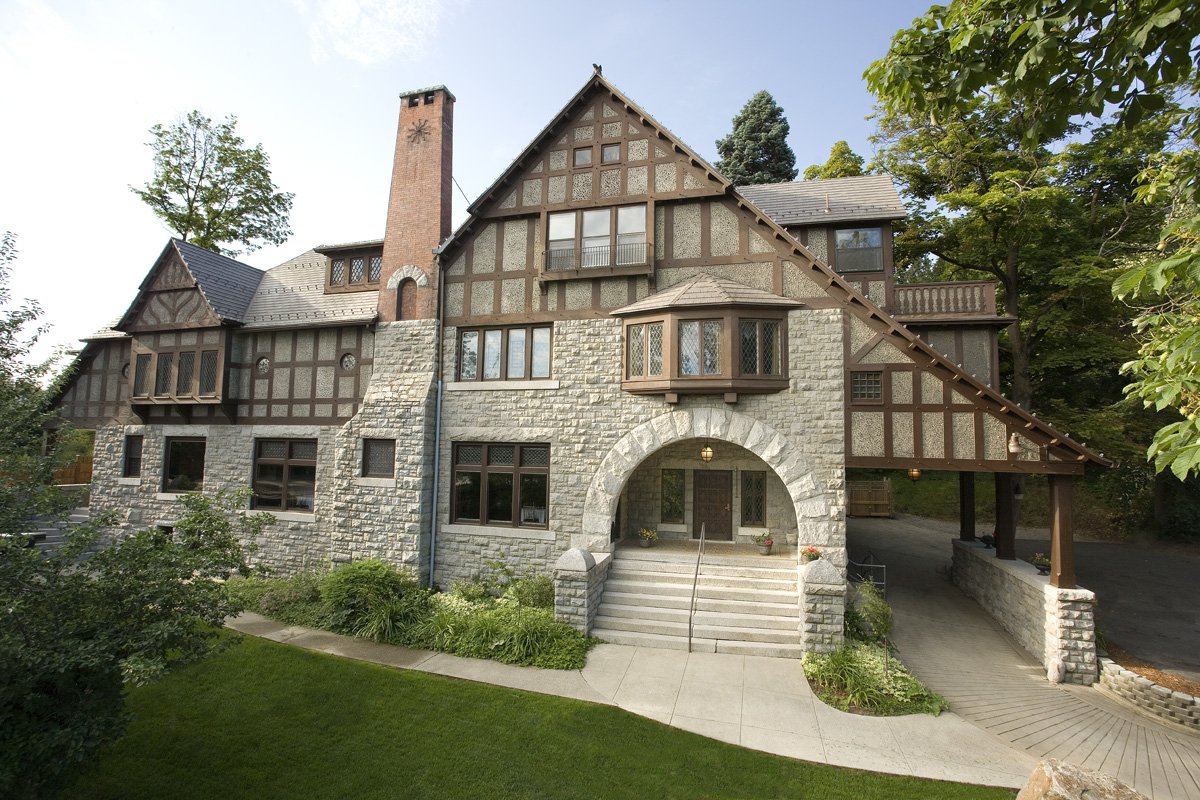#5272. Tudor Manor: Elegant Façade with Half-Timbering and Stone Masonry
This impressive residence exemplifies an exquisite example of Tudor Revival architecture, skillfully combining traditional English architectural motifs with elements of a country manor. The façade displays the classic "half-timbering" — a decorative framework of dark wooden beams contrasting with light stucco or stone infill, creating a characteristic checkerboard pattern on the upper floors.
The lower portion of the façade is constructed from light-colored cut stone, giving the building's foundation solidity and substance. Particularly expressive is the central arch of the main entrance — wide, semi-circular, and framed by massive stone blocks. The broad staircase leading to it, with simple railings, emphasizes the monumental nature of the entrance group.
The roof features a complex multi-gabled form with steep pitches typical of Tudor style. A tall brick chimney with decorative crown adds a vertical accent to the overall composition. Window openings vary in form: there are both rectangular windows with the characteristic Tudor-style mullioned glazing and bay window projections that add plasticity to the façade and create additional illumination for interior spaces.
The side wing with a portico supported by wooden posts forms a covered driveway, which is a functional element organically integrated into the overall composition. The surrounding landscape with a well-maintained lawn and thoughtful greenery accentuates the aristocratic character of the building, while the paved pathways frame the structure, highlighting its architectural merits.
